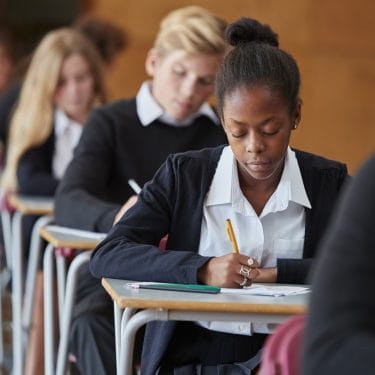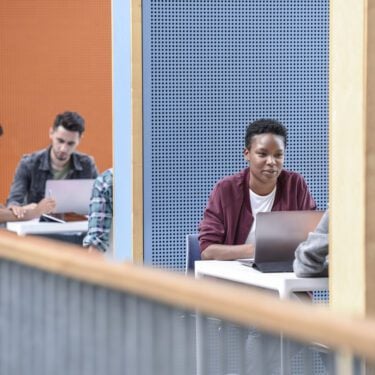
18/05/20
3 min read
Each May, the Nuffield Research Placements team are busy matching around 1,000 high attaining post-16 students from disadvantaged backgrounds to STEM-related research placements. The students spend four weeks of their summer holiday working with cutting edge researchers on a live research question, developing new skills in a professional environment.
In early March, as it became clear that the COVID-19 pandemic would mean in-person placements could not go ahead this year, we responded quickly to develop an exciting alternative, online programme – Nuffield Future Researchers.
Reframing the programme at short notice was a daunting prospect, but with the goodwill, enthusiasm, and creativity of our partners, we were able to move the programme online to offer young people an authentic, sustained, and credible research and skills development programme.
To make this happen, the Foundation has asked a lot of the communities we work with, especially the placement providers, to adapt their carefully developed plans for ‘hands on’ investigative research projects so that students can participate remotely.
Our students have also had to adapt. Digital skills and online learning have moved from being a tool to be deployed when appropriate in school and college classrooms to being the primary way to reach learners.
To some degree, we are living through a live experiment on the ways in which technology (and access to it) affects the quality of teaching and learning, with approaches ranging from full online teaching (through platforms like Zoom, Teams, or Google Classroom) to PDFs of worksheets being emailed to parents.
However, as our Growing up digital report concluded, we must be wary of assuming that young people are digital natives who will develop digital skills simply by using digital technologies.
In creating this summer’s offer to students, we are fortunate to be equipped with plenty of detailed knowledge about the skills students develop through STEM placements. This has enabled us to curate a set of activities that will stretch and develop students’ research and transferable skills. Crucially, students will continue to work with talented researchers from a range of STEM specialisms – albeit virtually.
The activities will all be delivered via Google Classroom and will include:
- Essential skills
We have worked with the Skills Builder partnership to develop a placement-specific set of activities to allow students to assess students’ essential skills, including listening, presenting, problem solving, creativity, leadership, and teamwork skills. - Data skills
We have developed a suite of activities that will help students refresh their numerical skills (based on National Numeracy’s diagnostic challenge). Students will then engage with two data activities adapted for us by the Cardiff University Q-Step Centre, before analysing some short animated films about data topics developed by the University of Sheffield Q-Step Centre to extend their awareness and understanding of data use. - Research skills
We are drawing on material developed in collaboration with the Gatsby Charitable Foundation Science Enhancement Programme (Learning Skills for Science activities) and updating and adapting them to offer students activities which will encourage them to think like researchers.
Students will then co-create a research topic with a lead researcher and complete and write-up an investigation focused on a real research issue.
We expect students to complete all of the modules in 60-70 hours across the summer, which will make their work eligible for entry into the British Science Association CREST Gold Award scheme.
This programme’s main aim is to give young people from disadvantaged backgrounds the opportunity to gain skills and confidence in science and research, and we hope to be able to continue this in the online world with the support of our partners: British Science Association; BP-Business in the Community; Gatsby Foundation; National Numeracy; Q-Step universities; Skills Builder Partnership; and UKRI.
Research project hosts are critical to the delivery of this programme, and we always have more students than projects. If you think you or your organisation could help to make a big and positive impact on a young person’s life this summer by supporting a Nuffield Future Researchers project, please contact us.
About the author
Dr Simon Gallacher is the Head of Student Programmes (including Q-Step and Nuffield Research Placements) at the Nuffield Foundation. He has worked in education research and policy for over 25 years for a variety of organizations, including the Training and Development Agency for Schools (TDA), the National Foundation for Educational Research (NFER), CEM, Wellcome, and Teach First. Simon’s main interests are in data, science, and mathematics education, and the teacher labour market. He has recently managed a review of digital education in schools in the UK. In a previous life he was a researcher in soil chemistry.






















































